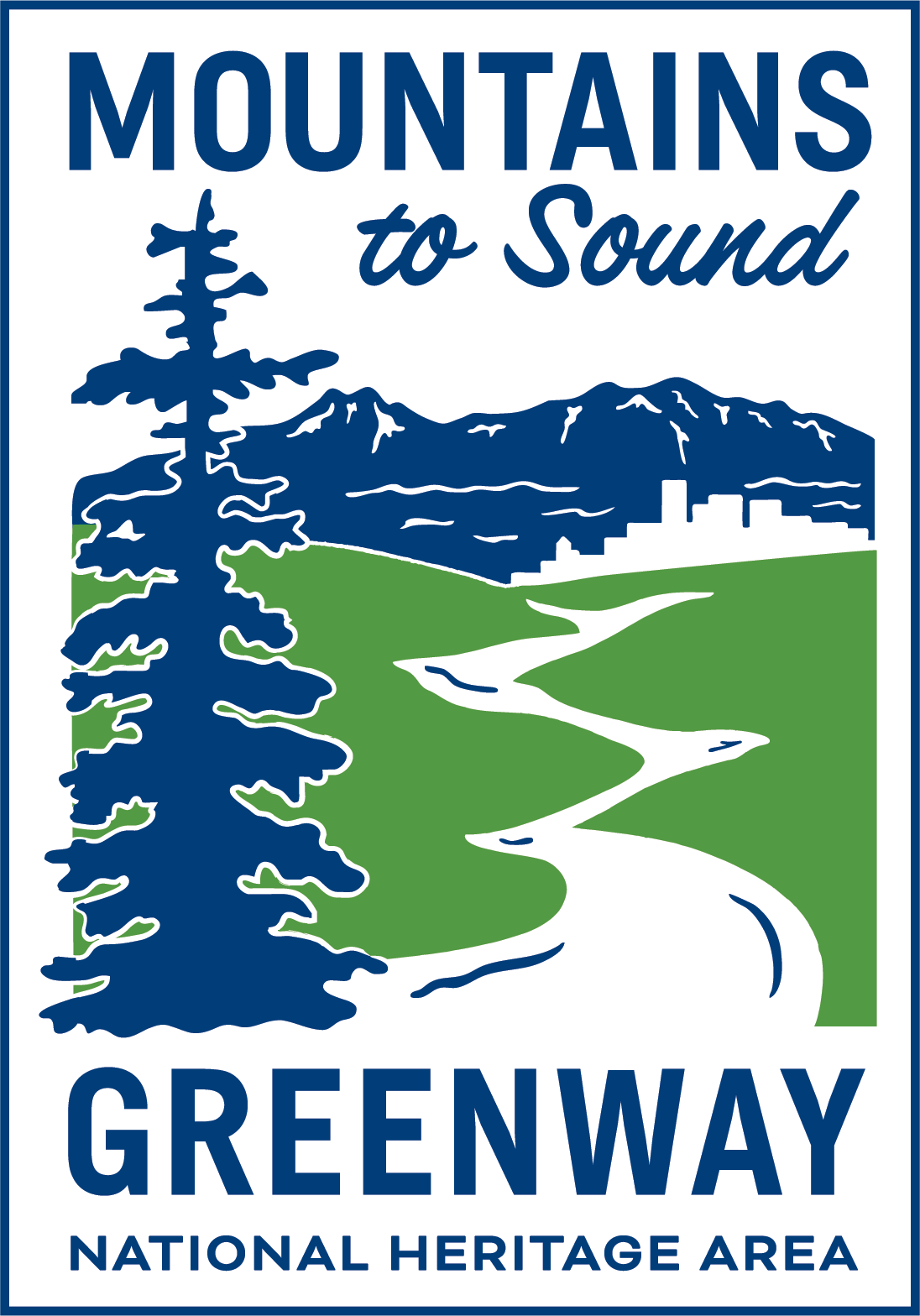Why is recognition of the Mountains to Sound Greenway as a National Heritage Area important?
The National Heritage Area designation affirms the Mountains to Sound Greenway is a landscape of national significance and that the Mountains to Sound Greenway Trust’s cooperative approach to conservation works. We provide a collaborative approach to conservation that empowers local involvement in the landscape.
What does the National Heritage Area designation mean?
As communities across the Greenway undergo massive growth, this designation offers new opportunities to more effectively conserve natural resources, preserve and share cultural heritage, and contribute to the economic vitality of the region. Specifically, goals of the Greenway NHA are to:
- Amplify the region’s rich history and natural heritage through interpretive and educational programming for the public.
- Uplift the region’s tribal heritage and provide a platform for native voices to tell stories of their peoples and be closely involved in ongoing stewardship of the NHA.
- Promote pride of place and connections to nature in Greenway communities through appreciation of local heritage and stewardship of natural resources.
- Protect and steward natural, cultural, and historic resources through historic preservation, ecological restoration, and collaborative conservation strategies.
- Grow funding opportunities through private and public partnerships and interagency coordination.
- Promote responsible recreation activities and heritage-based tourism that are positively linked to protection of NHA resources.
Does the National Heritage Area designation impact private property rights?
NO. Designation does not add new regulatory authority or other management restrictions over private lands. It does NOT require property owners to provide public access to their land, and it does NOT require property owners to participate in any plan, project, program, or activity of the Heritage Area. The legislative bill includes specific language to ensure these private property protections.
Does the National Heritage Area designation affect water, hunting, fishing, or treaty rights?
NO. Designation does not affect water, hunting, fishing, or tribal treaty rights.
Does the National Heritage Area designation add federal government oversight?
NO. Designation does not add federal government oversight over local management decisions and it does NOT remove ownership or management of public lands from any public agencies currently managing them. Land management remains with current agencies such as the U.S. Forest Service or Washington State Parks. National Heritage Areas do not increase federal regulation over lands.
Does the National Heritage Area designation mandate the acquisition of new public lands?
NO. Designation does not mandate the acquisition of new public lands, however we continue to work to acquire strategic parcels for public ownership from willing sellers at fair market value, consistent with our strategic plan.
Does the National Heritage Area designation increase funding opportunities?
YES. Official recognition may increase funding opportunities for Greenway projects through increased visibility and voluntary partnerships.
What is the role of the Mountains to Sound Greenway Trust?
The Greenway Trust was appointed as the coordinating entity of the new National Heritage Area, a role for which our collaborative, inclusive organization is uniquely suited. For nearly thirty years, the Greenway Trust has led a broad-based coalition toward a vision of preserving a healthy balance between people and nature between Seattle and Ellensburg.
What is the role of the National Park Service?
While the National Heritage Area program is administered by the National Park Service, National Heritage Areas are locally initiated and independently managed. National Heritage Areas do not add new regulations; instead, they support voluntary partnerships and a community-based framework for cooperation. Existing land managers, such as the U.S. Forest Service as well as state and local agencies, will continue to manage their lands.
